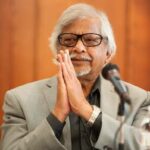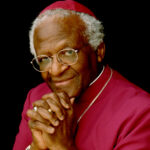Social Activist
Maneka Gandhi (born 26 August 1956) is an Indian politician, animal rights activist, and environmentalist. She is a member of the Lok Sabha, the lower house of the Indian parliament and a member of the Bharatiya Janata Party (BJP). She is the widow of Indian politician Sanjay Gandhi. She has been a minister in four governments, most recently in Narendra Modi’s government from May 2014 to May 2019.
She also authored a number of books in the areas of etymology, law and animal welfare.
she is an environmentalist and animal rights leader in India. She has earned international awards and acclaim. She was appointed chairwoman of the Committee for the Purpose of Control and Supervision of Experiments on Animals (CPCSEA) in 1995. Under her direction, CPCSEA members carried unannounced inspections of laboratories where animals are used for scientific research were conducted.
In 1996, she protested the opening of the first McDonald’s restaurant in India. Justifying her protest, she stated that “we don’t need cow killers in India”.

Jody Williams
Jody Williams is an American political activist known for her work in banning anti-personnel landmines, for which she was awarded a Nobel Peace Prize in 1997. Her work also involves advocating for human rights, particularly women’s rights, and her efforts to promote understanding of emerging technologies and their security implications.
Jody founded the International Campaign to Ban Landmines (ICBL), which she developed from two NGOs with a staff of one (herself) to a network of 1300 NGOs in 90 countries, working with foreign governments, UN bodies and the Red Cross.

Arun Gandhi
Arun Gandhi is the fifth grandson of Mohandas Gandhi. Arun grew up in South Africa under Apartheid laws. He was beaten by white South Africans for being “too black” and by black South Africans for being “too white”. He initially fought back with an ‘eye for an eye’ mentality, but learned from the teachings of his grandfather that justice does not equate to revenge but rather to transforming the opponent through love and understanding.
Arun says that the greatest lesson he learned from his grandfather was that of understanding violence. He says, “If we know how much passive violence we perpetrate against one another we will understand why there is so much physical violence plaguing societies and the world.” Arun shares these lessons around the world, speaking at the United Nations, various college campuses and world summits.
Desmond Tutu is a South African social rights activist and retired Anglican bishop who is most widely known for his work during apartheid in South Africa. He received the Nobel Peace Prize in 1984 for his work in opposing apartheid, which included organizing peaceful protests and economic boycotts as well as advocating for reconciliation between all parties involved.
One of his greatest achievements was spearheading the Truth and Reconciliation Commission after apartheid, which focused on restorative justice in prosecuting perpetrators of apartheid. Perpetrators were given the opportunity to request amnesty if they admitted to committing crimes, and victims were invited to give statements about their experiences.
At 87 years of age, Gene Sharp is still a force to be reckoned with. He is the founder of the Albert Einstein Institute, a nonprofit dedicated to advancing the study of nonviolent action, and a retired professor of political science at the University of Massachusetts Dartmouth.
Sharp has been nominated for a Nobel Peace Prize four times, including this year, and is known as the Machiavelli of nonviolence. His work is based on the idea that subjects of dictatorial states are the source of the state’s power. If subjects refuse to obey their leaders, they will reduce the power of the state and eventually cause it to collapse.


